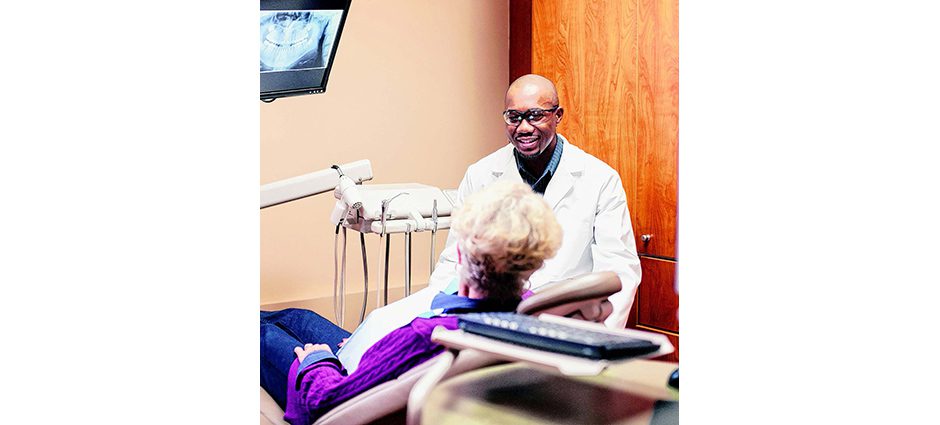
[This piece was written by Roseanne Henley, RDH, BS, Practice Manager of St. Peter’s Dental Center.]
According to the National Institute of Dental and Craniofacial Research (NIDCR), the prevalence of tooth loss in seniors over age 65 has been on the decline since the early 1970s. That’s great news!
But, seniors still face a range of special oral concerns whether they are caring for natural teeth or dentures. The American Dental Association notes that more than 25 percent of seniors over 65 have severe gum disease that can affect overall health, as well as their ability to eat the foods they want.
Caused by bacteria in the plaque that forms on and around the teeth, gum disease is a chronic infection and a major reason for tooth loss as well as other health problems. If left untreated, gum disease can start to break down the gum tissue and the bone supporting the teeth.
As the bone supporting the tooth is destroyed, tooth loss becomes inevitable. In addition, the chronic inflammation caused by gum disease affects the rest of the body. Studies have linked it to heart disease, diabetes and bacterial pneumonia.
Seniors are generally more vulnerable to tooth decay and gum disease, in part because of many commonly used medications that cause dry mouth. This lack of saliva makes the mouth susceptible to infections and decay. In addition, smoking and consuming too much coffee, tea, soda or alcoholic beverages can dry the mouth even more.
This is why good oral hygiene is so critical. If you have a hard time holding a toothbrush because of arthritis, you might want to switch to an electric toothbrush. Or, get creative – attach a bicycle grip to the handle of the brush, or cut a slit in a tennis ball and slip the handle through the slit. Likewise, if flossing is difficult due to arthritic hands, talk to your dental hygienist about flossing utensils that can assist in the process.
It is also crucial that you visit your dental office at least once a year for a teeth cleaning and oral examination. Even for those seniors who no longer have natural teeth, it’s still essential to get an annual oral cancer screening and soft- and hard-tissue exam.
Your doctor and your dentist are unlikely to communicate regularly with each other, so be sure to inform both offices about your medications and chronic medical conditions. Your overall health is highly dependent on good oral health. With the proper care, you can boast a winning smile that will last a lifetime.
St. Peter’s Dental Center (1092 Madison Avenue, Albany – 518-525-1757) provides high-quality, cost-effective, comprehensive dental health care to both children (beginning at age five) and adults. An experienced team of professionals work together with patients, families, social service agencies and community groups to offer a broad range of care services to local communities.





